
Editing is an ever-changing industry. To stay competitive, language professionals must continuously develop and hone their skills. There are many opportunities for continuing professional development (CPD) out there, but finding time for it can be tricky. In this post, I take a look at the different kinds of CPD and suggest how to make time for ongoing learning.
Virtual meetings
Conferences are a great way to find out what is new in your industry and to hone your skills. The pandemic has forced many conferences to move online, meaning you can now attend from the comfort of your own home (goodbye travel expenses!). Although we were disappointed not to be able to meet in person, I think we would all agree that SENSE 2020 was a big success. And those of us who attended the Chartered Institute of Editing and Proofreading (CIEP) 2020 conference were similarly impressed with the quality of the sessions and how well the conference had been adapted for an online audience. A big advantage of online conferences is that the sessions are often still available after the event, giving attendees plenty of time to catch up on anything they missed. So why not attend an online conference this year? Here are some examples of what’s on offer:
- ACES: The Society for Editing conference on 22–23 April
- CIEP conference on 11–14 September
- Mediterranean Editors and Translators (MET) conference on 14–15 October
- European Association of Science Editors (EASE) conference on 23–24 June.
Specialist training
Training courses are a good way to develop your editing skills. Once you have mastered the core skills, you can start to look for more specialist courses that interest you or are relevant to your work. I edit scientific research papers, so after completing some general copyediting training, the CIEP’s Medical Editing course seemed like a good place to refine my skills. Although some of the course content (such as the academic publishing process, and structure and format of standard research articles) was familiar to me after working as a research scientist, the course was invaluable because it taught me how to approach editing scientific texts methodically and be a more efficient editor. It also highlighted common style issues in medical editing. This specialist training raised my profile as an editor and helped me land jobs as a copyeditor for two medical journals.
Reading
Reading books that are relevant to your niche is an easy way to fit valuable CPD into your busy schedule. Books on academic writing give valuable insights into how I can better help my clients with their research writing (They Say/I Say by Gerald Graff and Cathy Birkenstein, Writing Science in Plain English by Anne E. Greene, Give Readers Nuggets by Ed Hull and Writing Science by Joshua Schimel are some of my favourites), while books about copyediting in general help to identify areas I need to work on (for example, Carol Saller’s The Subversive Copy Editor motivated me to make my editing more efficient by learning how to use Word’s features. Thanks to the CIEP’s course on Word for Practical Editing, I now use macros daily to speed up my editing).
Finding the time
One obstacle to CPD is finding the time to do it. Scheduling regular CPD time around your usual editing/translation work can help; perhaps an hour every morning for reading, or half a day a week to work through an online course. An accountability group of like-minded language professionals can help to keep you on track with your CPD goals.
If, like me, you suddenly found yourself spending hours every day home-schooling small children, taking an online course or scheduling time for reading might seem laughably unrealistic! Thankfully, there are easier ways to squeeze valuable CPD into your busy schedule: listening to podcasts while doing the ironing or spending time interacting in online groups, for example. Scrolling through the Editors Association of Earth Facebook group is a great way to find solutions to problems you didn’t know you had, and The Editing Podcast by Louise Harnby and Denise Cowle is crammed with useful information for writers and editors.
If you have any additional tips for effective CPD, share them in the comments below!
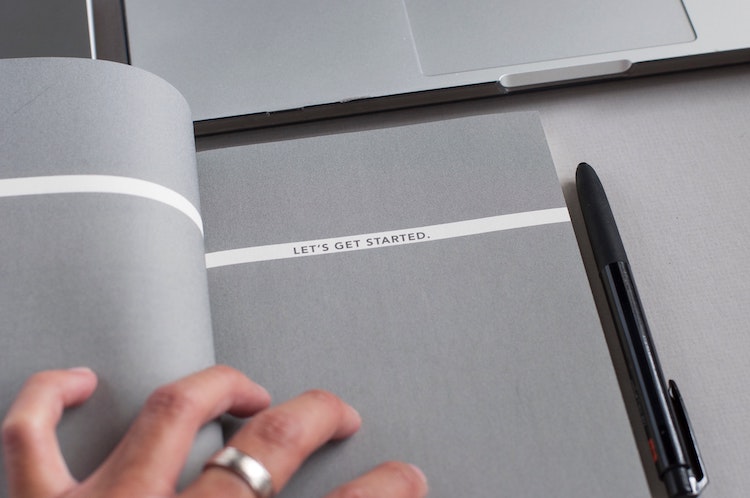
Welcome to SENSE, the Society of English-Language Professionals in the Netherlands! SENSE is a professional network for language professionals working in, into, or from English; English is our working language, but we’re happy to have you if your native language isn’t English or if you live outside of the Netherlands. Anne Oosthuizen, Martina Abagnale and Danielle Carter, the co-conveners of the Starters SIG (we’ll explain what that is below), have written this blog post to help you navigate SENSE as a new or soon-to-be member. Welcome!
Let’s jump right in: how should you get started when you join SENSE? And how can you get the most out of your SENSE membership? There’s a wealth of resources and information available via the SENSE network, so it can be a little intimidating trying to navigate it all – this guide will help you get started.
Joining SENSE
In case you haven’t already joined SENSE, you can find more information about becoming a member here and register to join SENSE.
Staying up to date
You can add the SENSE blog to your RSS feed. Once you become a member, you will also receive a newsletter with updates about new blog posts and membership-wide events. You can also follow SENSE on Twitter, join the closed SENSE LinkedIn Group, follow the SENSE LinkedIn page, and join the SENSE Facebook page.
SENSE also wants to hear from you! If you have a blog, SENSE will help to advertise your posts by occasionally sharing them on social media and in the newsletter. To notify SENSE about your blog, send an RSS link to
Special Interest Groups (SIGs)
The best way to stay tuned is to subscribe to relevant groups on the forum! SIGs are small, members-run subgroups within SENSE that cater to specific fields of interest, topics or regions. You can find a list of all the SIGs here.
You’re welcome to attend events from SIGs that you’re not subscribed to, and also feel free to attend, for example, Southern SIG events even if you live in Groningen (or Spain). Keep an eye on the calendar to find events that may be relevant for you.
Starters SIG
The Starters SIG is specifically geared towards people who are just getting started in the language industry or people who are changing paths within the industry. We organize monthly events on a variety of topics relevant for us; for example, finding initial clients, setting rates, or freelance marketing.
Forum
You can subscribe to any SIG on the forum to stay updated on their activity. In addition to a category for each of the SIGs, there are also various categories for different issues or interests. You can subscribe to a category and receive an email update for each new post by clicking on any category and then hitting “Subscribe” in the horizontal bar above “Subject.”
Some of the most important categories for getting started are Jobs (where SENSE members can post job opportunities), Professional Practice (a place to discuss some of the nitty gritty of work as a language professional), Resources (where members post resources that they’ve found helpful) and the Starters SIG group. You can also add a browser bookmark to the most recent topics so that you can check in on the latest posts in categories you’re not subscribed to.
The very first thing you should do is introduce yourself on the Introduce Yourself section of the forum.
Professional development
In addition to SIG events and the forum, the Best Practices handbook, the mentorship programme, the SENSE conference on alternating years with the Professional Development Day (see the calendar) all provide opportunities to develop your professional practice and advance your career.
You can also volunteer for SENSE, which is a great way to put yourself out there and get to know the many wonderful language professionals who are SENSE members. You can volunteer by setting up a SIG, joining a SIG as a co-convener or by helping with social media or event planning, for example.
Again, keep an eye on the calendar for other professional development opportunities! SENSE regularly hosts workshops and events.
External resources
You may have also noticed a few non-SENSE events on the calendar. The calendar is updated with other language-related events and conferences, and SENSE has a few sister organizations, which also host events and produce content that may be relevant for you.
Hot tip: It may seem funny to look into these other organizations, but you can find a variety of different events, networking groups etc and get a discount at SENSE’s sister organizations if you’re a SENSE member, so go on and see if there are relevant things happening in these organizations too!
In addition to SENSE’s sister organizations, you may also want to check out the Vertalerskoffiehoek (a Dutch-language translators Facebook group, which many SENSE members are a part of and which hosts a weekly co-working session), the Editors Association of Earth Facebook group, and the BP Translation conference (which hosts regular professional development events for translators).
If you’re still feeling a little lost or overwhelmed, get in touch! Post your question on the Starters SIG forum or email one of our conveners. We’ll help you find the way.
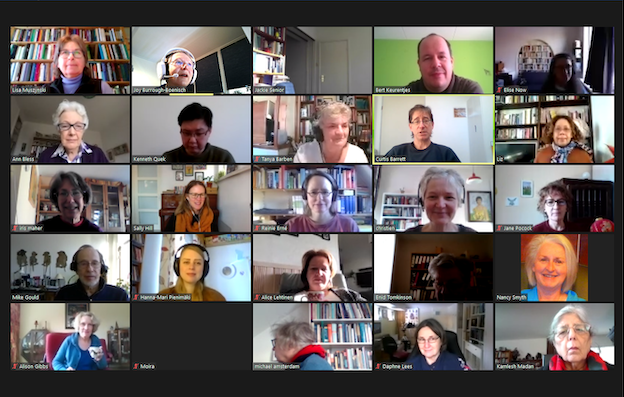
The 12 January UniSIG meeting was convened by Joy Burrough-Boenisch, who welcomed all 29 attendees and introduced the speaker, Lisa Muszynski, language revisor at the University of Helsinki. Also present were five non-SENSE members: two from Finland, two from South Africa and one from the Netherlands. South African visitor Tanya Barben, member of PEG, reports:
Lisa explained that the term ‘revisor’ (rather than ‘reviser’) is used to describe the person responsible for revising the English (one of the University's three official languages) of the over 60,000 texts processed annually by staff and freelancers working for the University’s Language Services (the ‘unit’, hereafter). These texts comprise abstracts, articles and books whose publication is anticipated, as well as doctoral theses. The revisors also check the acceptability and fidelity of texts translated into English. They are encouraged to use tracked changes and margin/bubble comments, and any interaction with the client is generally via the easier email rather than by phone.
The revisors establish whether the arguments presented are logical; the focus is on grammatical and linguistic accuracy as well as reader comprehension. In the case of articles and books, their aim is to get the work to publication standard (although some emendations might be necessary following the peer review process). Essentially, the unit’s purpose is to improve the text’s quality and fluency, to get the client’s ‘foot in the door’ for academic publishing, and to cede the final responsibility for the text to the client.
The freelancers are given guidelines and a list of reference works and citation styles (including clickable links to some) they are expected to be familiar with. Prior to the pandemic, there were meetings and in-person training sessions. Not all the freelancers have academic qualifications, but some are very experienced and some better than herself, Lisa suggested. All are native speakers of English and are expected to have passed a test based on the worst paper ever received by the unit.
There is a coaching element to what the freelancers and Lisa do. They address lexical problems via comment bubbles and, where necessary, suggest alternative, more natural-sounding sentences; clients have an opportunity to indicate exactly what they want to say.
Of course, there are limitations to what the revisor can do. In all instances, it should be made clear that any changes are not editorial interventions but rather suggestions that the client can accept or reject. There is a need to recognize that the needs of clients may differ. Revisors should also maintain a balance between revision and editing and be aware of the difference between content and style.
A staff member of the unit liaises with the clients to obtain any feedback. Complaints are rare. The clients are responsible for their texts (and for any plagiarism) and for getting them published.
The meeting lasted about 60 minutes. Attendees participated fully and some of the many questions asked form part of the above account.
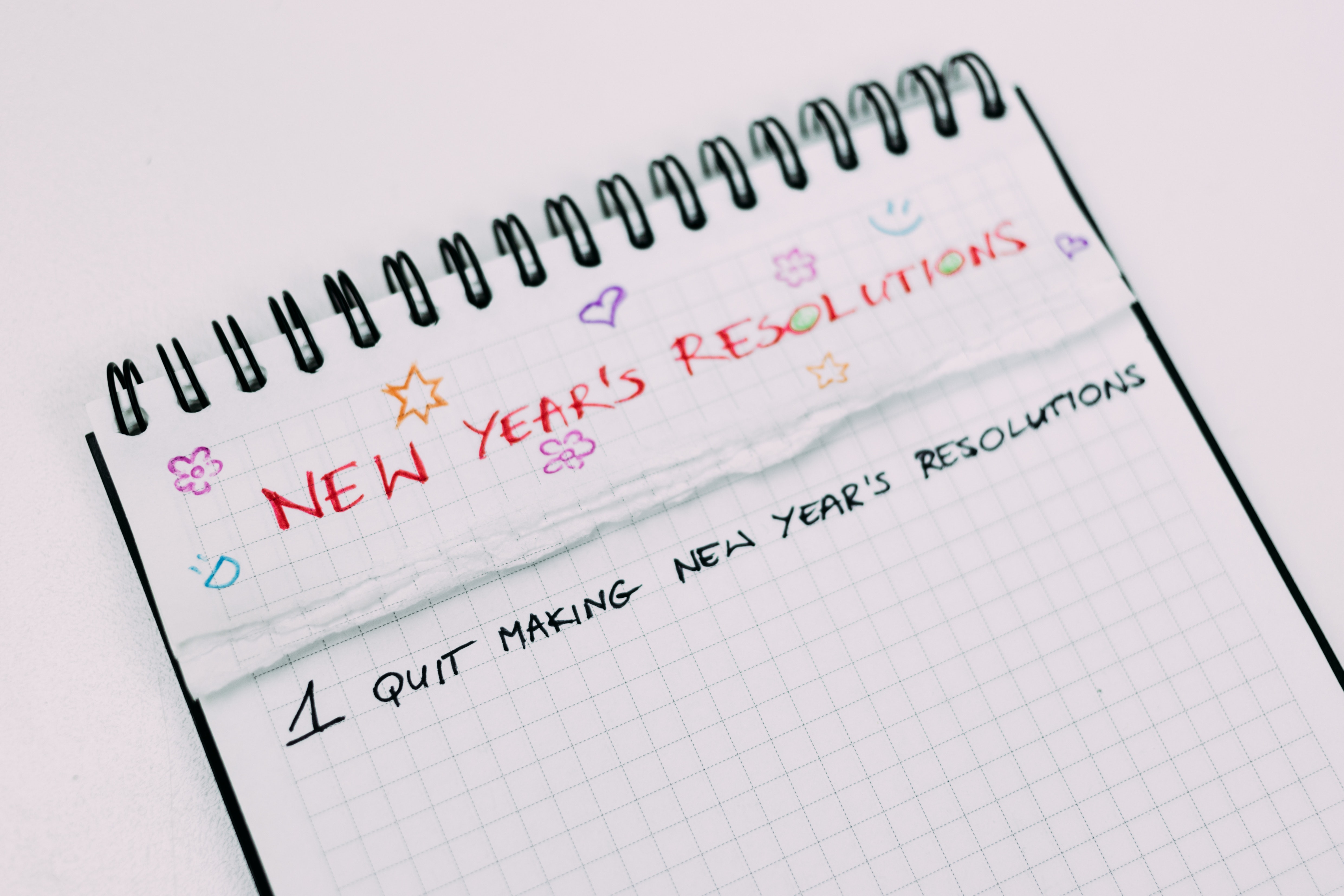
The first Starters SIG of 2021 revolved around our New Year's resolutions. As everyone came in, we spontaneously started off with tricky T's & C's and the pain of insurance policies. But that’s the beauty of this Starters SIG: all questions are welcome!
After briefly discussing what to look out for (your legal liabilities) and concluding insurance policies are worth thinking about when starting out (especially in legal translations), our hosts Danielle Carter, Martina Abagnale and Anne Oosthuizen introduced the evening's theme: our goals for the new year.
I was immediately reminded of why I've been enjoying these meetings: a lot of us go through (or have gone through) the same thing. There is always someone who shares a similar story, to encourage you or provide some timely advice. For example, one of my own goals for 2021 – expanding my copywriting skills – was in fact inspired by other SENSE members. They recommended the copywriting course from the College of Media & Publishing, and I’m happy to say I’m on track to graduate in May!
Another regular topic at the Starters SIG is finding new clients, and how to go about approaching them. LinkedIn is a popular place to go, as are other social media. The main idea is: you have to be where your (potential) clients are, and engage with them there. One member even snatched her dream client by following them for a very long time until eventually they approached her!
It looks like the Starters SIG is full of plans for the new year. Some of us are just starting out, wanting to find our first, second or third client. Others are looking to expand or rebrand, and it was really inspiring to hear everyone share a bit of their background as a way to move forward through the new year. And the best news is, you can join a first meeting or two even if you’re not a SENSE member yet! Keep an eye on the Events calendar for more information.
We now have a room full of so-called accountabilabuddys – ready to tackle 2021!
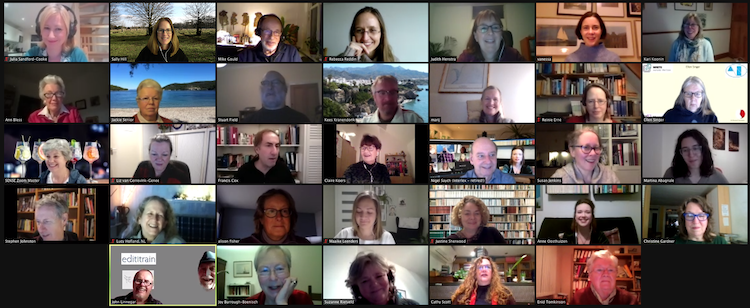
How do you move forward from a year like 2020? By having a few drinks with fellow editors and translators of course! On 8 January, SENSE organised its annual (and my first) New Year’s Borrel. What follows is a recap by newbie borrelaar Maaike Leenders.
To borrel or not to borrel
Let me start off with a little confession: I rarely do ‘borrels’. I can’t help imagining a room full of strangers trying to chit-chat, wondering why on earth I opted for heels instead of sneakers.
I’m glad to say this was different!
First of all, we met up online. This turned out to have some substantial benefits:
- People joined from all over the world, including those who couldn’t have attended a live event;
- The breakout rooms made it easy to ‘mingle’ with different people;
- Fun backgrounds (hello, giant cocktail glasses!);
- No heels!
A sense of community
The afternoon started off with a short introduction – of people and drinks – and best wishes for the new year. We continued with smaller groups of about 3–4 people to discuss a topic. Then we promptly forgot about said topic and talked about The Year That Was 2020. Once we rejoined the whole group, there was plenty of room for positivity. For example, did you know SENSE members have very interesting (pandemic proof) hobbies? There’s books and baking, walking and writing, but we’re also learning new languages – even that of horses!
To wrap up the afternoon, our host Anne Oosthuizen organised a book bingo that offered everyone an opportunity to share a bit about their books – and themselves – with the whole group. I’m happy to say my reading list for 2021 is now about twice as long.
An all-around success for sure!
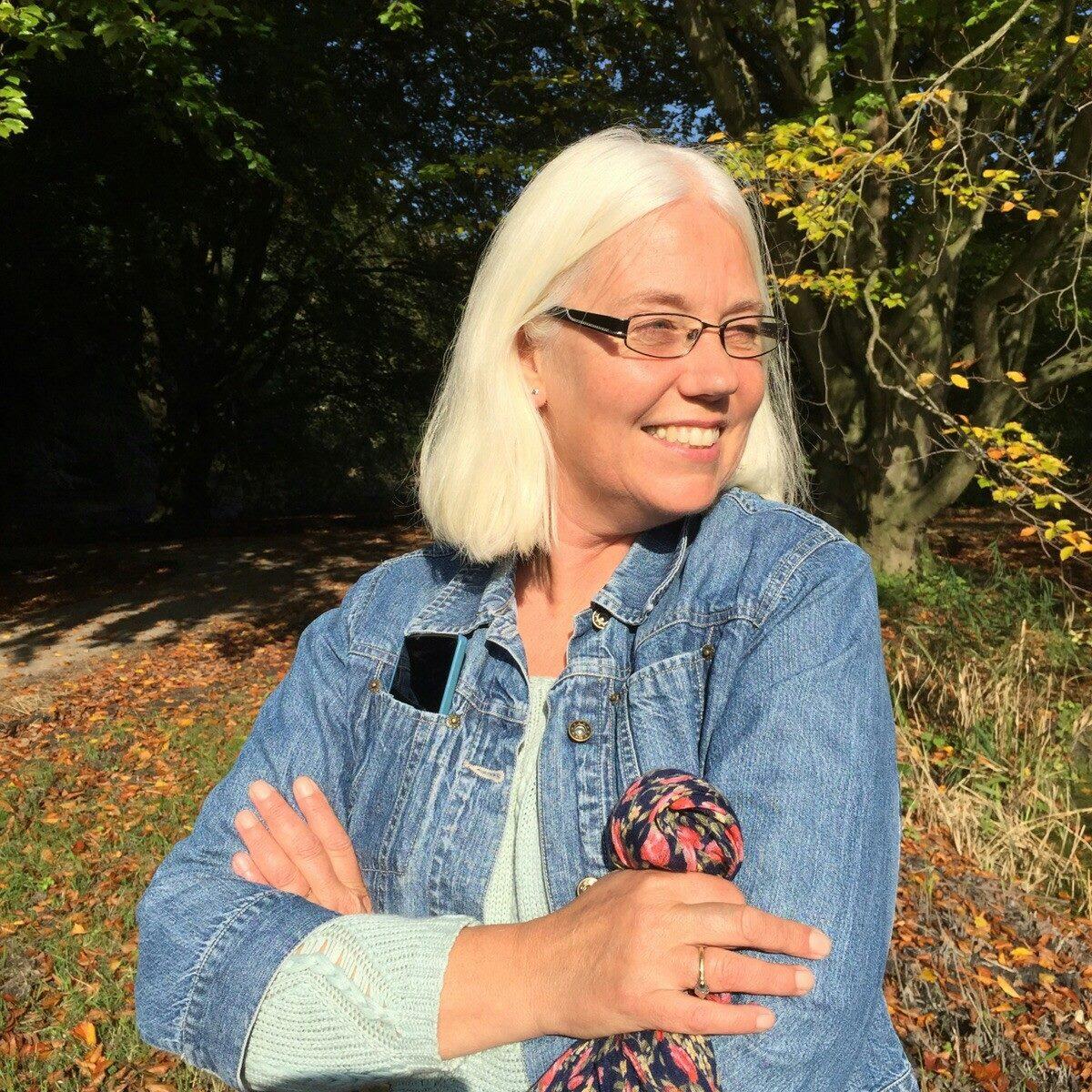
When Carla Bakkum tells people she specializes in financial translation, reactions vary all the way from awe to downright horror. But take it from somebody who has spent over 30 years Swimming with Sharks, the financial world is exciting. Here Carla busts seven common myths about the profession.
You need a financial background to be a word worker in this sector
False. I myself am a case in point. As a Dutch gymnasium student, I was never bothered with something as mundane as economics, and five years studying English at the University of Amsterdam made me none the wiser financially. But when private bank Pierson, Heldring & Pierson came to our professors looking for fresh translation talent, they recommended me, three-times winner of their department’s poetry translation contest. I blithely applied, having virtually no idea what I was letting myself in for, but knowing translation was where my heart lay.
Though I didn’t get the in-house job, the head translator Silvia Zaugg called me not much later to ask if I’d like to work freelance for them. She coached me intensively through my first on-site assignments and unfailingly sent me back the revisions not long after. With the experience I gained, I applied for and won work from ABN AMRO: I was launched as a financial translator. And what got me there? An enquiring mind, a sharp pen and a knack for quickly learning new languages – such as financialese.
It’s all about numbers
False. Financial texts are about the real world, about economic activity in all its varieties. Translating stock market updates, annual reports and press releases means treating yourself to a crash course in anything from beer brewing to baby nutrition, from aviation to nanotechnology, from power plants to solar cells. Some inkling of chemistry and physics is a real help, I find, and can actually give you an edge on the investment writer whose text you’re working on (who has typically studied economics or law). If you enjoy developing a broad knowledge base and learning something new every day, you have the makings of a financial translator.
It’s mind-bogglingly difficult
Sorry, not entirely a myth. Besides developing more than a nodding acquaintance with a myriad businesses, translating investment texts and annual reports means getting to grips with exotic beasts like hedge funds, interest-rate swaps, CoCos, floating rate notes, bear straddles, impairment, EBIDTA, tier 1 ratios…. And just when you think you’re on top of things, financial innovations like bitcoin and blockchain technology come along. Enough to make your head swim! Looking on the bright side, though, Google is your friend, and finance is one of the best-documented fields on the internet. If you do this kind of work long enough, you may actually one day catch your investment writers talking through their hats.
It’s ho-hum boring
False. If the variety and complexity of the subject matter isn’t enough to keep you on an adrenalin high, the tight deadlines will surely do the trick. Nowhere is timely information more a make-or-break factor than in the investment business, and nowhere does news turn stale more quickly. So if you can’t deliver that update the same day or overnight, you may as well not bother. Even then, in the time you need to translate your update, new events may reduce it to toilet-paper status. I was rarely more frustrated than the day I worked flat out to deliver a 2,500-word article, only to be told the next day they wouldn’t be using it and asked to translate a completely new one. On a positive note, I did, of course, get paid for both.
It’s a boom-and-bust business
It depends. There is a sizeable core of financial translation, editing and writing that needs doing whether business is booming or in the depths of recession. Annual reports, for example. But the times when I was translating one IPO prospectus a week are long gone. The 2008 recession had a definite impact on my top line. Over the years, however, my brushes with a range of industries while working for banks enabled me to win business clients outside the financial industry as well. I worked to expand in those areas and on broadening my own offering by venturing into copywriting.
There is no fun in financial translation
False, definitely false! The language of the stock market in particular oozes imagery. What is essentially just a matter of price variations over time is described in the financial pages with a poetic zest that is second only to that seen in sports journalism – perhaps because securities trading, like competitive sports, is an activity where modern humans (overwhelmingly men) sublimate their primordial lust for battle. Stocks can soar and nosedive, markets and profit-and-loss accounts can colour red, and Mario Draghi of the ECB has a Big Bazooka he can fire to defend the euro. Even if you’re not writing for the dailies, your texts are often meant for your client’s clients, and therefore need to be engaging and pleasant reading, a worthy calling card for the organization. The authors are rarely talented writers. Taking their pumpkin and mice and turning that into a golden carriage with six white horses is a significant added value that we, the fairy godparents of communication, bestow on our financial clients.
The financial industry is an evil empire that nice word workers like us should shun
False. Yes, false. Let me start by saying that among the people I have dealt with personally, the #@*hole count was extremely low. Many of my contacts are in-house translators, who are up against the same problems I face, but have to bear the brunt of all the office politics, too. The financial specialists I’ve worked with, barring a few exceptions, are dedicated and decent people. It was a horrifying experience watching the 2008 sub-prime crisis unfold from my particular vantage point as a freelancer and a word worker.
As I see it, the downfall of the mighty banks was perhaps not so much a matter of toxic assets as of toxic jargon. The quants who created the overly complex securities, and the traders who traded them, spoke a language that even their own bosses didn’t understand, let alone the investors who bought the securities. As in the fairy tale of the emperor’s new clothes, nobody dared admit they were clueless – or they preferred to ask no questions as long as the returns were so phenomenal.
As a word worker in this sector, you have the option to either go with the flow or spread a little clarity. I was once asked by a pension fund client to summarize and then translate into Dutch a lengthy ‘explanation’ of hedge funds. It had been given to them by a New York asset manager they had hired to invest in hedge funds on their behalf. One of my most challenging jobs ever! When I’d finished, the text was down to manageable size, readability greatly improved, jargon overload pruned – and the vital bad-news info that had been tucked away in the footnotes was now restored to the body text. A real eye-opener for my client. These days, with the harsh spotlight of public opinion shining more intensely on them than ever, financial institutions need to communicate more clearly, both internally and externally, and many are taking steps in the right direction. They are on the threshold of a much-needed culture shift, and as communication specialists we play a key role.
This article was originally published in eSense 43 (2016).
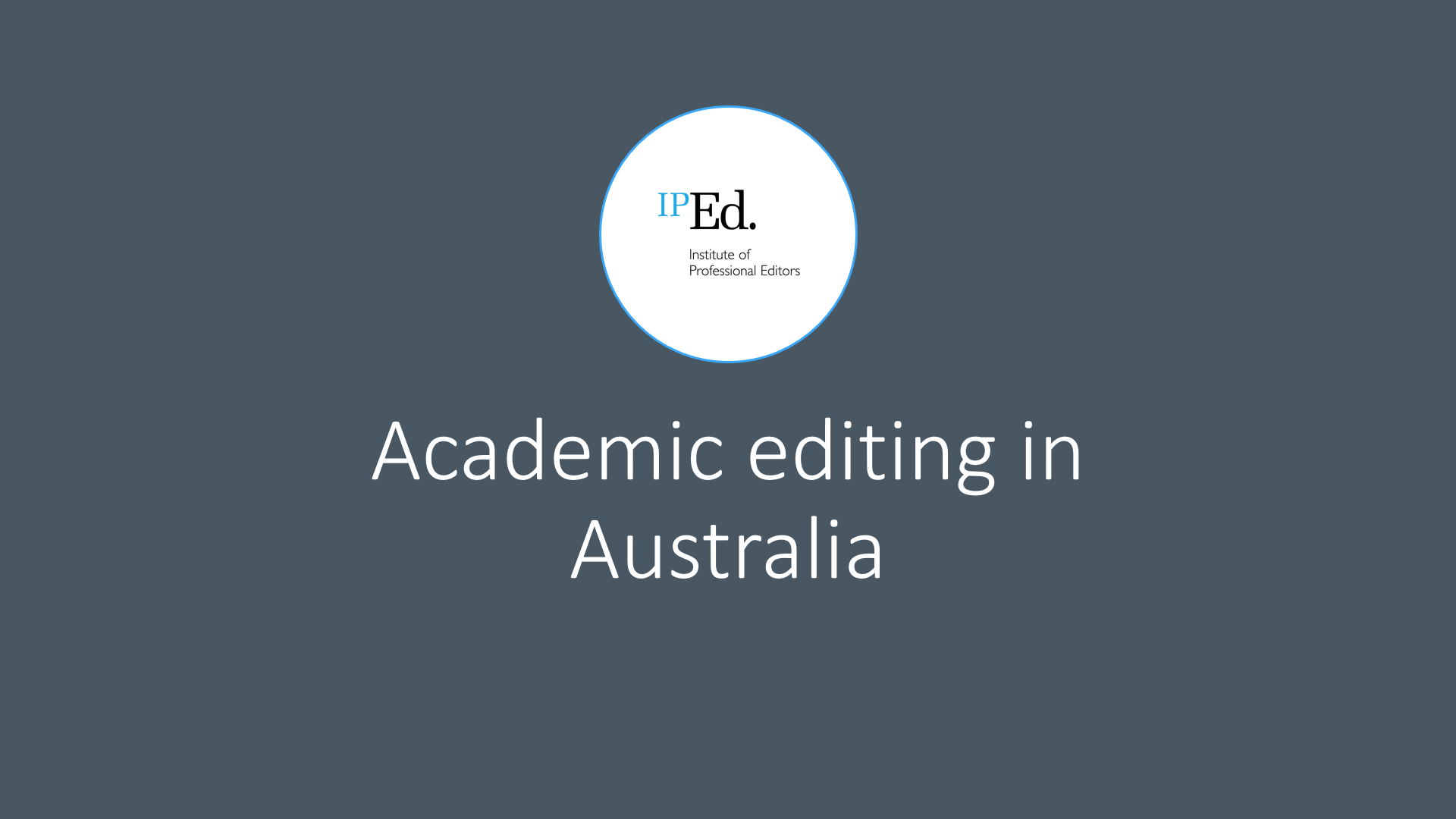
Thanks to Zoom, our January UniSIG speaker Hazel Baker was able to join us on a cold winter morning from Sydney, Australia, where it was a hot summer evening. Over 20 of us – including a couple of guests from the UK and South Africa – logged in on 15 January to hear her talk on ‘Academic editing in the Australian context’.
Hazel set the scene by giving a quick overview of IPEd, the professional association for Australian and New Zealand editors. Its 1,200 or so members are bound not only by its Constitution but also by its Code of Ethics. If they wish, they may apply for accreditation, which entails passing a stringent three-hour exam based on IPEd’s Australian standards for editing practice and then renewing their accreditation every five years. Like SENSE, IPEd has a directory of editors that can be used to search for editors with specific subject expertise and language skills.
Moving on to describe the academic context, Hazel pointed out that 25% of the students at Australia’s 43 universities are international, with Chinese accounting for the largest group, followed by students from India, Nepal, Brazil and Vietnam. A new edition of IPEd’s Guidelines for editing research theses was published in 2019. As well as explaining the copyediting and proofreading tasks involved in editing master’s or PhD theses, the guidelines also detail the responsibilities of supervisors and students.
It was no surprise to hear that in Australia, the cost of editing a thesis depends on the time needed, which in turn depends on factors such as number of words, complexity and quality of the language. Hazel noted that an Australian university will typically contribute about AUD 800 for editing a thesis; that’s equivalent to only about EUR 536! She did add that in practice, costs were higher.
Some of the aspects Hazel highlighted were familiar to us here in the Netherlands. They included the techniques of editing (tracking changes and using marginal comments), the ways editing can help academic researchers, who does the editing (salaried editors, freelance editors, editors working for companies providing editing services) and the range of documents they deal with, but there were differences. For example, under IPEd’s guidelines, students should show their editor their supervisor’s written approval to use an editor, and the version of the thesis the editor receives to work on must have been approved by the supervisor (‘signed off’) for editing. The guidelines clearly state what is meant by copyediting and what is meant by proofreading; from the discussion following Hazel’s talk it was clear that in Europe, the distinction is generally not so clear-cut and that in the UK in particular, ‘proofreading’ can cover a range of textual interventions, some of which are major. SENSE member Stephen Machon, however, did point out that faculties of law at Dutch universities take care to specify that editors of theses by law students may amend language but not content and that this process of amending language only is generally termed proofreading and not editing.
In response to a query about acknowledging editors’ input (which the guidelines advocate), Hazel noted that IPEd has suggested wordings available but that some universities require their suggested wording be followed.
This informative and lively 90-minute meeting demonstrated the added value of using Zoom to link up with colleagues from around the world to gain insights into other approaches and contexts of editing. There will be more opportunities for international linkups in forthcoming meetings!

On 6 November 2020, SENSE organized REFOCUS • REBOUND • REPEAT: a free panel discussion on risk-taking and agility for freelancers in turbulent times. The panel consisted of four founders of international, creative-industry companies, and was moderated by SENSE CPD Coordinator Matthew Curlewis. Longtime SENSE members Carla Bakkum and Francis Cox share their respective takes on the event.
Carla Bakkum:
I had signed up for the REFOCUS – REBOUND – REPEAT panel early on, drawn by the prospect of fresh voices from outside our regular circles. And I was not disappointed with the panel that our CPD Coordinator Matthew Curlewis expertly put together and hosted: the geographical range – from here to down under and back – was spectacular, and the varieties of English were a joy to hear.
David Beckett, the nestor of the group, related how he reinvented himself in the 2009 crisis after a losing his big-company job – an inspiring lesson in soul-searching and discovering your true talents. Industry influencer Kerry Finch highlighted the shift toward stakeholder capitalism among the big brands she advises. Amsterdam-based recruiter and consultant Mariette Hoitink described the ecosystem of young talents she works with and their take on life: keen to create, experience and take care of the world and each other, while less focused on financial success (a great example for older generations, I would say.) Valerie Khoo reported that writers in her country were bearing up pretty well in the current circumstances, while also reminding us that there’s a world beyond Covid-19 – it already exists in Australia!
Over 100 participants tuned in, all of whom could post questions and add comments. I saw lots of familiar names come by. It saddened me a bit that I couldn’t share a drink with them after the event, but on the whole, I came out of the session feeling genuinely uplifted.
Francis Cox:
The word 'inspiring' is overused, particularly in the copywriting game, but it fits the SENSE panel discussion REFOCUS - REBOUND - REPEAT. I was worried at first that it was going to be too corporate-speaky (‘Amplifying a thought leadership position’? Spare us!), but it soon got down to brass tacks. As someone who's reinvented himself several times over the years, a lot of the strategies mentioned were familiar to me. I'm a strong believer in making small improvements and changes in order to reach a bigger goal. That's how I moved to the Netherlands. I particularly liked Valerie Khoo's comment that there are a lot more opportunities out there for professional growth and change than you might think. That's certainly been my experience.
I had a problem, though, with the idea of pivoting or doing a 180. It sounds too drastic. I've been a video technician, fundraiser, translator, copywriter and actor. For me, there's been a logical progression to that career path since all those jobs relate to communication. One strategy I would add to those covered in the discussion is: Listen to the signals you get from your network or the universe in general. That's how I became an actor. More recently, people have been telling me I have a great voice. Because of that, I've been developing myself as a voice actor throughout the last lockdown. By constantly growing and changing in this way, I feel able to face whatever life throws at me.
What other attendees said:
“Outstanding, thank you all!”
“Very interesting, a good combination of panellists.”
“Inspiring discussion, thanks to SENSE and speakers!”
“Really useful and enjoyable.”
“Plenty of food for thought.”
The panel discussion recording is available upon request until 28 February 2021. Please

The Starters SIG meeting on 7 December 2020 was an enjoyable session packed with useful information about personal branding for freelancers. Graphic designer and identity branding expert Sarah Notley discussed using social media, getting started with email marketing and the essentials of website design. She started her presentation with the thought-provoking statement that ‘Personal branding is the story people tell about you when you're not in the room.’ Having caught everyone's attention, she went on to talk about the tools you can use to communicate your brand (your visual identity, your website etc.), where to look for your target audience and how to reach them (don't put all your eggs in one basket), setting goals and ways of measuring success, choosing brand assets and making them work for you (without having to invest more time and effort than you can afford) and effective marketing strategies. She also discussed the basic principles of search engine optimisation (SEO) and strategies to make sure that your website fulfils Google's preferences for ranking websites in response to users' search queries.
Besides providing a wealth of practical information and tips, Sarah also looked at the current websites of two brave volunteers. She then provided them with constructive feedback and suggestions for improvements. This was an extremely useful exercise (as well as an opportunity to see fellow translators' websites), since it provided attendees with practical examples of the elements she’d covered in her presentation. Maaike Leenders, one of the volunteers, had this to say about the experience:
‘I’d been thinking about redoing my website for a while and was struggling with the same questions over and over again: Where to start? What am I doing right and what can be improved? Should I do it all myself or get some help? So when the call came for volunteers to show their website to a brand identity specialist, I knew I had to get out of my comfort zone and sign up.
Sarah made it a very practical and pleasant experience. After talking to us about building a brand and the important elements of your (online) presence, it was time to look at the volunteers’ websites. I can’t deny I was a bit nervous about having everyone take a look at the same time! However, the positive feedback I received and Sarah’s presentation really clarified what I could tackle first – and how. This was exactly what I was looking for, and I’ve got my plan for a 2021 website revamp ready to go!’
The meeting ended with a Q&A session during which Sarah answered participants' questions and provided yet more information, suggestions and prompts.
Although I've been a freelance translator for quite some time, I've only recently started marketing myself and my 'brand'. A website is top of my list, so this session was just what I needed!

The importance of revision will be self-evident to SENSE members. It’s easy to overlook a mistake when you’re juggling two different languages, or editing copy or publications. So how do you revise effectively? Fortunately, Brian Mossop is a respected authority on revision and answered this question, among many others, during his two-part workshop. Because of the pandemic, Brian could not join us as planned at the 2020 Jubilee conference, but thanks to the marvels of technology, Brian could tell us more about revising without leaving the comforts of his home in Canada.
The first part of the workshop focused on revision in general and self-revision in particular. On the solid basis of academic research and forty years of experience, Brian shared his thoughts on revision, translation quality and the principles of making changes. He argued, for example, that revision should be primarily considered a reading exercise and not a writing exercise. Revisers should ask themselves if they really need to make a change, not whether they can think of a better translation. Furthermore, having a clear definition of ‘quality’ or ‘fit for purpose’ in mind can help you work more objectively, more justifiably and possibly even more quickly.
Rethinking what revision is and is not proved to be a valuable exercise in itself, but the workshop also included many hands-on exercises to put those new insights into practice. During one exercise, attendees identified which translation strategy comes naturally to them. If you know that you tend to start revising mid-translation or that you don’t look back before your first draft is done, you can adapt your revision strategy accordingly.
Attendees also had the opportunity to discuss their revision experiences and share their own best practices. One helpful tip was to revise ‘backwards’, that is to say, from the last sentence of the translation back to the first one. A few attendees reported this helps them when revising in a rush.
The second part of the workshop addressed, among other things, revising the translations of others. How do you check all possible aspects of a translation systematically? How much do you actually need to revise to assure quality? And how do you maintain a good working relationship between the revisor and the revisee, which can be the trickiest part of revision? One great tip was not to make changes you can’t justify, as well as remembering this is not your translation. If it is a good translation, it is perfectly justifiable to make no changes at all.
The workshop was quite intense, offering attendees many new insights as well as actionable best practices they could start applying right away. For instance, Brian recommended reading the translation before turning to the source text, which worked out surprisingly well for me personally.
If you would like to improve your revision skills, the fourth edition of Brian’s book, Revising and Editing for Translators, is now available.

